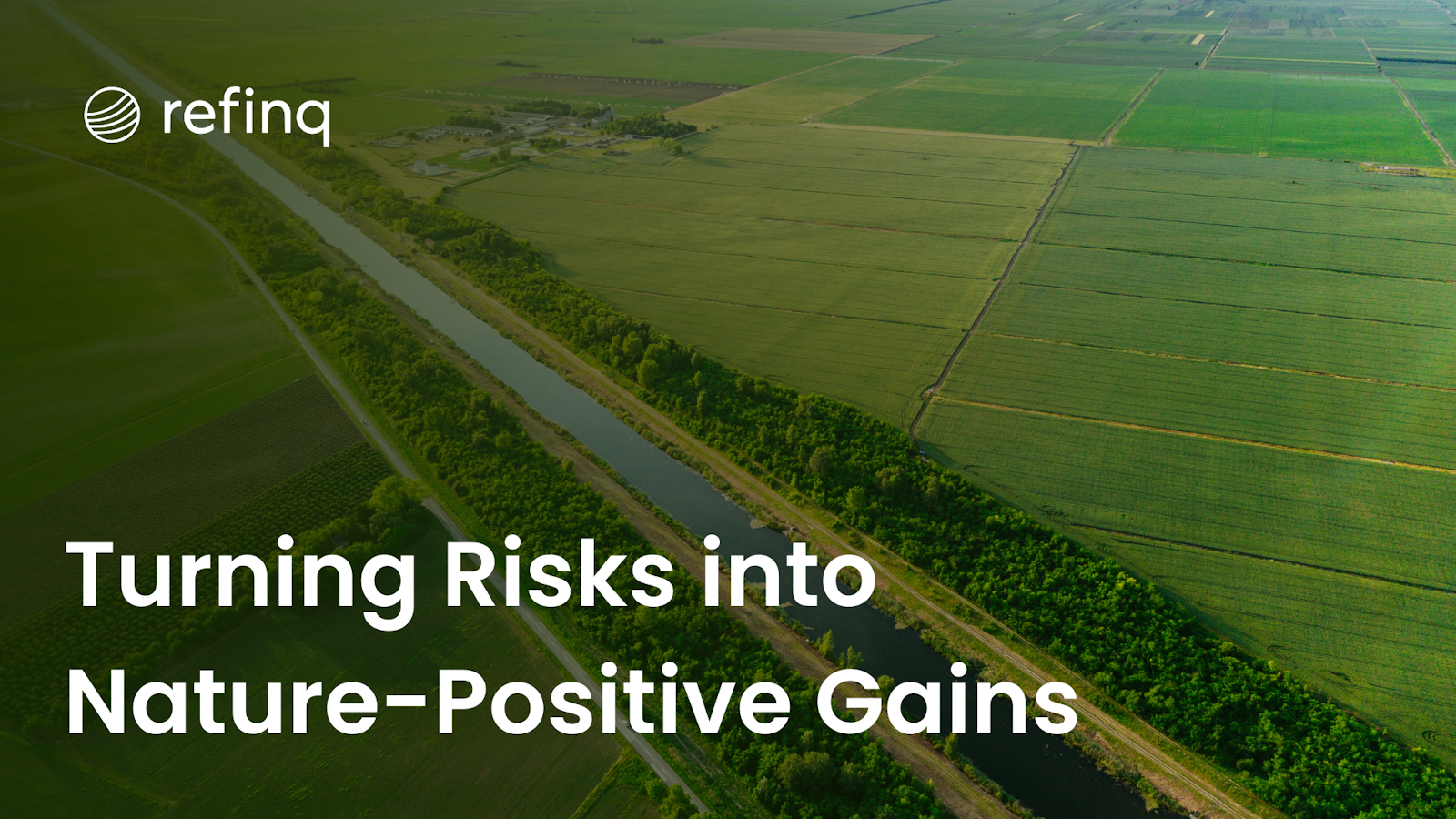

Nature plays a vital role in our lives, influencing the air we breathe, the water we drink, and the food we eat. Beyond these essential services, nature underpins our global economy, with $44 trillion of global value added—over half of the world’s GDP—generated in industries dependent on nature and its services. According to TNFD, $577 billion in annual agricultural production is at risk due to the decline of wild pollination and other critical natural resources. These figures emphasize why adopting nature-positive models is critical for businesses to address physical, regulatory, and reputational risks.
refinq is revolutionizing the way companies assess these risks. Using advanced SaaS tools, the platform helps businesses process complex environmental data with precision, aligning strategies with the Taskforce on Nature-related Financial Disclosures (TNFD). With more than 2.5 billion data points processed globally, refinq provides actionable insights that enable companies to mitigate risks while unlocking significant opportunities.
The degradation of ecosystems has far-reaching economic consequences. Biodiversity collapse could cause a global GDP decline of $2.7 trillion by 2030, with industries such as agriculture and fisheries facing severe disruptions. For example, the decline in pollinator populations jeopardizes up to $577 billion in agricultural production annually (LinkedIn Source).
While the risks are significant, businesses that embrace nature-positive strategies can uncover new opportunities. Transitioning to sustainable practices could unlock $10 trillion in annual business opportunities by 2030. This shift not only secures the supply of critical resources but also enhances brand value and operational resilience.
Nature-based solutions are an effective way to address both environmental and business risks. Projects like wetland restoration and afforestation enhance biodiversity while mitigating climate change impacts. These initiatives are integral to aligning with frameworks like the Taskforce on Nature-related Financial Disclosures (TNFD) (World Economic Forum).
Digital platforms like refinq enable organizations to incorporate biodiversity metrics into their decision-making processes. refinq’s real-time risk assessments and scenario-based forecasting empower businesses to prioritize actions, ensuring long-term sustainability and compliance with international standards.
Despite the clear benefits, many organizations encounter significant hurdles when integrating nature-positive strategies:
Data Scarcity: Many businesses struggle to access reliable biodiversity data. Platforms like refinq provide a solution by processing comprehensive datasets from Earth observation and climate models, offering granularity up to 25 meters.
Complex Frameworks: Navigating frameworks such as TNFD and CSRD can be daunting. refinq simplifies this process by aligning its risk assessments with global disclosure requirements, providing businesses with audit-ready reports.
Cost Concerns: Implementing nature-positive models requires upfront investment, which can deter organizations. However, studies highlight that these investments yield long-term cost savings and competitive advantages.
For instance, the World Economic Forum cites examples of companies successfully overcoming these challenges, demonstrating that proactive strategies drive innovation and resilience.
refinq: Enabling Nature-Positive Opportunities
refinq transforms the way companies perceive and manage nature-related risks. Key features of the platform include:
Granular Risk Assessments: refinq processes 2.5 billion data points globally to deliver actionable insights on biodiversity and climate risks.
Compliance Integration: Align with frameworks like TNFD and CSRD to meet evolving regulatory requirements.
Future-Proof Strategies: Predictive analytics help companies prioritize interventions based on potential impacts, ensuring both ecological and financial resilience.
By adopting refinq’s solutions, businesses can not only mitigate risks but also seize opportunities to drive innovation and growth.
Nature-positive actions yield significant economic benefits, from reduced operating costs to enhanced market competitiveness. Businesses that invest in biodiversity-friendly practices often experience improved stakeholder trust and reduced reputational risks (Proparco).
Industries such as finance, agriculture, and energy are at the forefront of the transition. These sectors recognize that sustainable practices are no longer optional—they are essential for maintaining economic viability in a resource-constrained world.
The future of business depends on the health of our planet. By transforming nature-related risks into opportunities, companies can secure their operations, meet regulatory demands, and contribute to a sustainable economy. Platforms like refinq provide the tools necessary to make this transformation a reality, offering solutions that align business growth with ecological preservation.
WEF: Spotlight on Nature – Case Studies for Business Transformation
WEF: Companies Leading the Transition to a Nature-Positive Economy